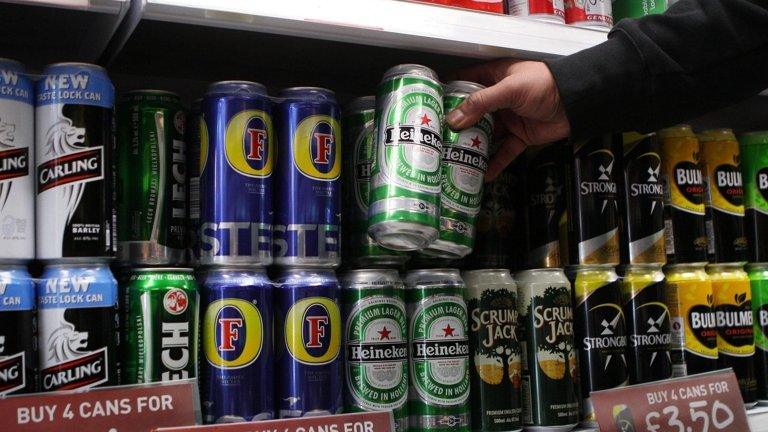Minimum alcohol policy referred to European court
- Published
The Scotch Whisky Association argued setting a minimum price for alcohol breached European law
A legal challenge to the Scottish government's policy on minimum alcohol pricing has been referred to a European court by the Court of Session.
Judge Lord Eassie said the Court of Justice of the European Union should give its opinion on the proposal, external.
The case was brought by The Scotch Whisky Association, which argued the legislation breached European law.
Holyrood ministers have said minimum pricing was vital to address Scotland's "unhealthy relationship with drink".
The Court of Session judgement means there could be a delay of up to two years before Scottish government plans to set a 50p rate per unit of alcohol can be implemented.
The Scotch Whisky Association, whose members account for more than 90% of the industry's production, had appealed against a Court of Session ruling that the minimum alcohol pricing policy was within the powers of Scottish ministers and not incompatible with EU law.
Two major European wine and spirit organisations are also party to the SWA's appeal.
Scottish Health Secretary Alex Neil said he was "frustrated" at the challenge to a democratic decision of the Scottish Parliament but expressed determination to see it through.
Mr Neil said a final decision would be made by the Court of Session, once legal opinion was received from the Court of Justice, in Luxembourg.
He added: "The first time we went to the Court of Session they gave us a ringing endorsement and were very clear that what we were doing was perfectly legitimate in law and I'm very confident we will end up with that decision being reinforced in two years' time."
In his written judgement, Lord Eassie said: "We have come to the view that - as heralded in the debate before us - the present proceedings raise aspects of those tests and of the role of the national court which are not clearly established.
"There are thus aspects relating to the Scottish ministers claim of justification under article 36 TFEU (Treaty of the Functioning of the EU) which we consider that it would be of help to have the guidance of the Court of Justice of the European Law."
Liver deaths
Legislation to bring in, external the government's price plan was passed by parliament in May 2012 but ongoing legal challenges have prevented the policy from being implemented.
According to NHS figures, Scottish deaths from chronic liver disease are among the highest in Europe, while alcohol kills the equivalent of 20 people a week in Scotland.
Scottish ministers said their minimum pricing plan, under which the cheapest bottle of wine would be £4.69 and a four-pack of lager would cost at least £3.52, would help tackle the problem.
Scotch Whisky Association chief executive David Frost, said of the latest ruling: "We are pleased that the Court of Session in Edinburgh is referring the minimum unit pricing case to the Court of Justice of the European Union.
"From the outset we said that we believed minimum unit pricing was contrary to European Union law and that it was likely in the end to go to the European Court.
"We also believe minimum unit pricing would be ineffective in tackling alcohol misuse and would damage the Scotch Whisky industry in the UK and overseas."
The UK government previously shelved plans for minimum pricing in England and Wales, after Prime Minister David Cameron cited concerns over evidence it would not work and possible legal challenges.
- Published25 July 2013
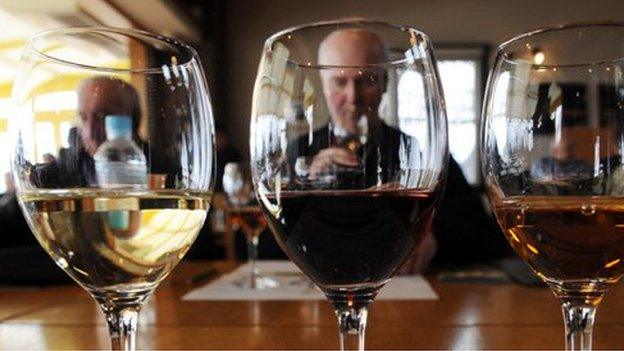
- Published3 May 2013
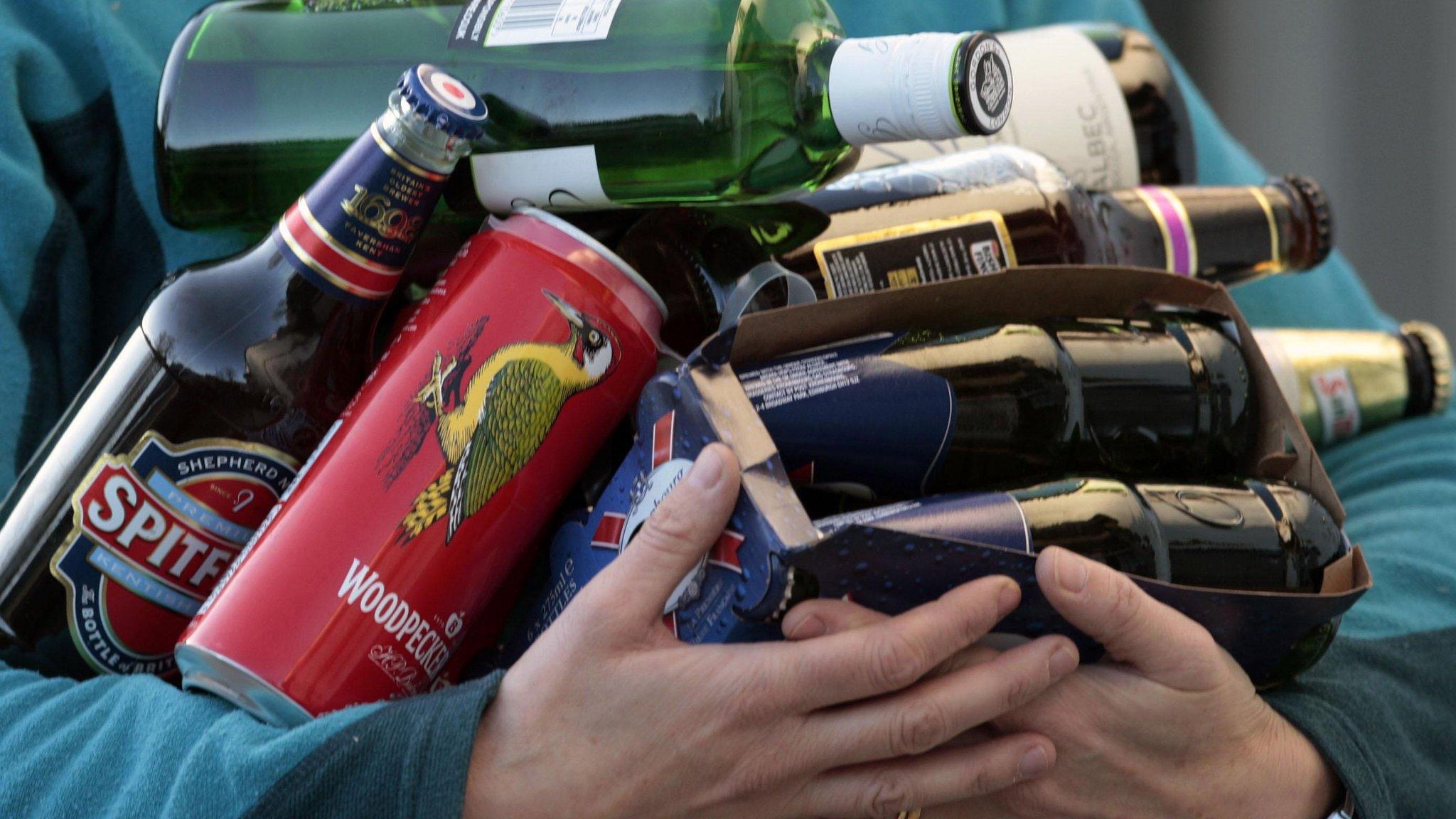
- Published6 February 2014
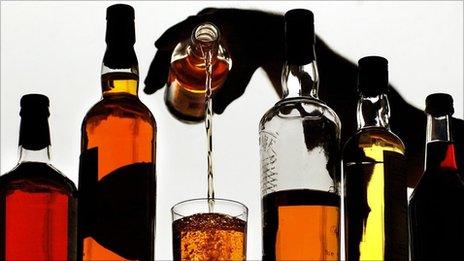
- Published1 April 2014
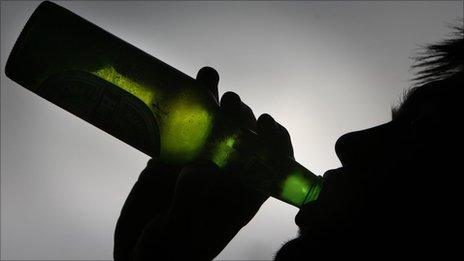
- Published24 May 2012
